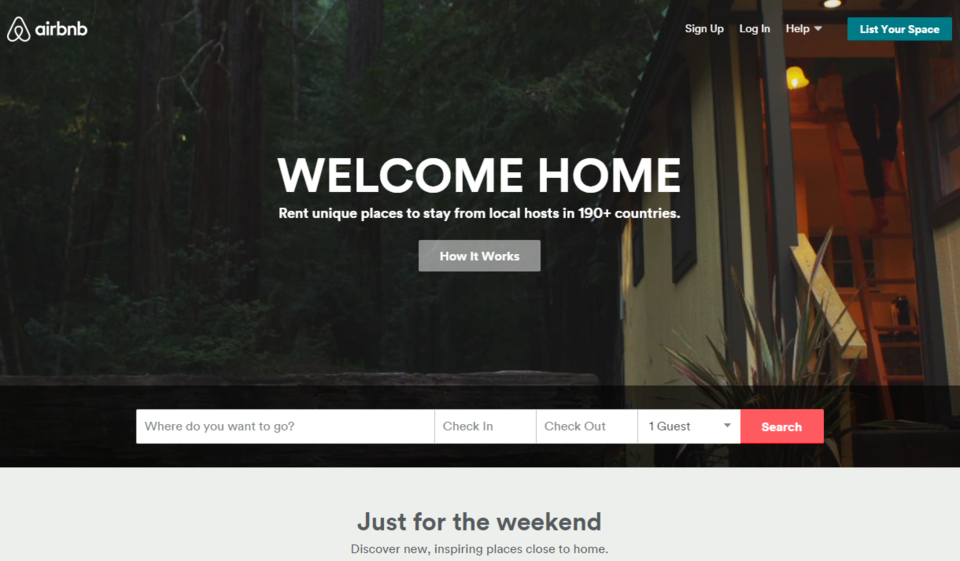I have a friend whom I’ll call Daniel.
Like many millennials, Daniel works in an industry where layoffs, corporate restructuring and contract work is the norm. At 30, he’s got a steady-but-still-new girlfriend, whom he’s not ready to move in with, and not much in the way of physical assets or savings. What he does have, however, is the lease on a sweet one-bedroom apartment in a desirable neighbourhood close to the beach. Although at $1,400 a month, it’s tight.
“Everything’s up in the air right now with my job,” he told me recently. “I just want a little bit of flexibility.”
So, what’s an overextended renter to do? Why employ Airbnb, of course.
The much maligned home-share site has fast become a favourite for savvy travellers, but it’s wreaking havoc on cities with tight rental markets — or so we’re told.
You’ll recall a study earlier this summer suggested greedy condo owners in this city are likely making a mint off of short-term rentals through the site, rather than renting to long-term tenants. This, of course, has added fuel to the concern over housing costs and supply, and led city staff to promise they’ll look into options to curb this unruly arm of the sharing economy.
But while strata councils raise safety concerns and housing advocates claim hardship, there’s another side effect of Airbnb that bears consideration. As much as the site seems to pose a threat to vulnerable renters, it’s also a saving grace for the very population that risks being pushed out.
Renters exist in a precarious world. For us, finding a place we like living in — and can afford — is like winning the lottery, only the prize money can be clawed back at any moment and through no fault of your own. Roommate takes off to South America and forgets to let you know? Realize you can no longer live with that live-in partner? Just get notice that you’re out of a job? You’re screwed unless you can come up with some temporary cash to buy you time until you figure out your next move. Why not crash on a friend’s couch for a couple of nights and — for once — reap the benefit of Vancouver’s ridiculously overpriced real estate?
I seriously considered signing up when my own living situation unexpectedly changed a few months back, but I balked at the idea of having strangers in my space.
Daniel, however, has no such qualms. When things got shaky on the job front, he turned to Airbnb in a bid to build himself a much-needed financial cushion without having to sacrifice too much in the way of lifestyle.
Inspiration hit during the FIFA Women’s World Cup in June, when there wasn’t a hotel room to be had. A little research revealed that, for the price of a new set of sheets and a few hours cleaning, Daniel could charge $300 a night a few nights a month and substantially beef up his income. In the time he’s been selectively renting out his place (he bunks with the girlfriend while guests are in town) he’s managed to save $3,000 and buy himself a little breathing room.
“This is a way for me to kind of build some security into my life,” he says.
Renters who participate in this grey market (most, like Daniel, without informing their landlords) also stand to reap an even more elusive reward: autonomy. The simple fact is living alone in this city is a luxury most cannot afford, even well past the stage of life when roommates are fun. Airbnb offers some semblance of independence.
Pursuit of that goal resulted in another friend, this one I’ll call Charles, leaving the East Vancouver home he’d lived in for five years. The owner of the house, a woman in her 40s, decided to phase out roommates in hopes of one day filling her single-family home with just that, a family. Preferably hers. She figured Airbnb could help facilitate that by netting comparable income to her long-term tenants but with the added bonus of affording her enough personal space to, you know, work on the family thing.
Charles is adamant he wasn’t Airbnb-victed, per se. He left willingly. (And as a silver lining, he fell in love with a woman he met in his new building.) But both my friends’ stories point to a complicated topography that has grown out of Airbnb, one that’s much more nuanced than studies and stats might show. While some people undoubtedly use the service to hoard, rather than share, scarce accommodation, others — many of them operating in legal grey areas — use it as a lifeline to get by or get ahead. As the city contemplates regulating short-term rentals, it would do well to devise mechanisms that discern the difference.
jessica.barrett@gmail.com
@jm_barrett



